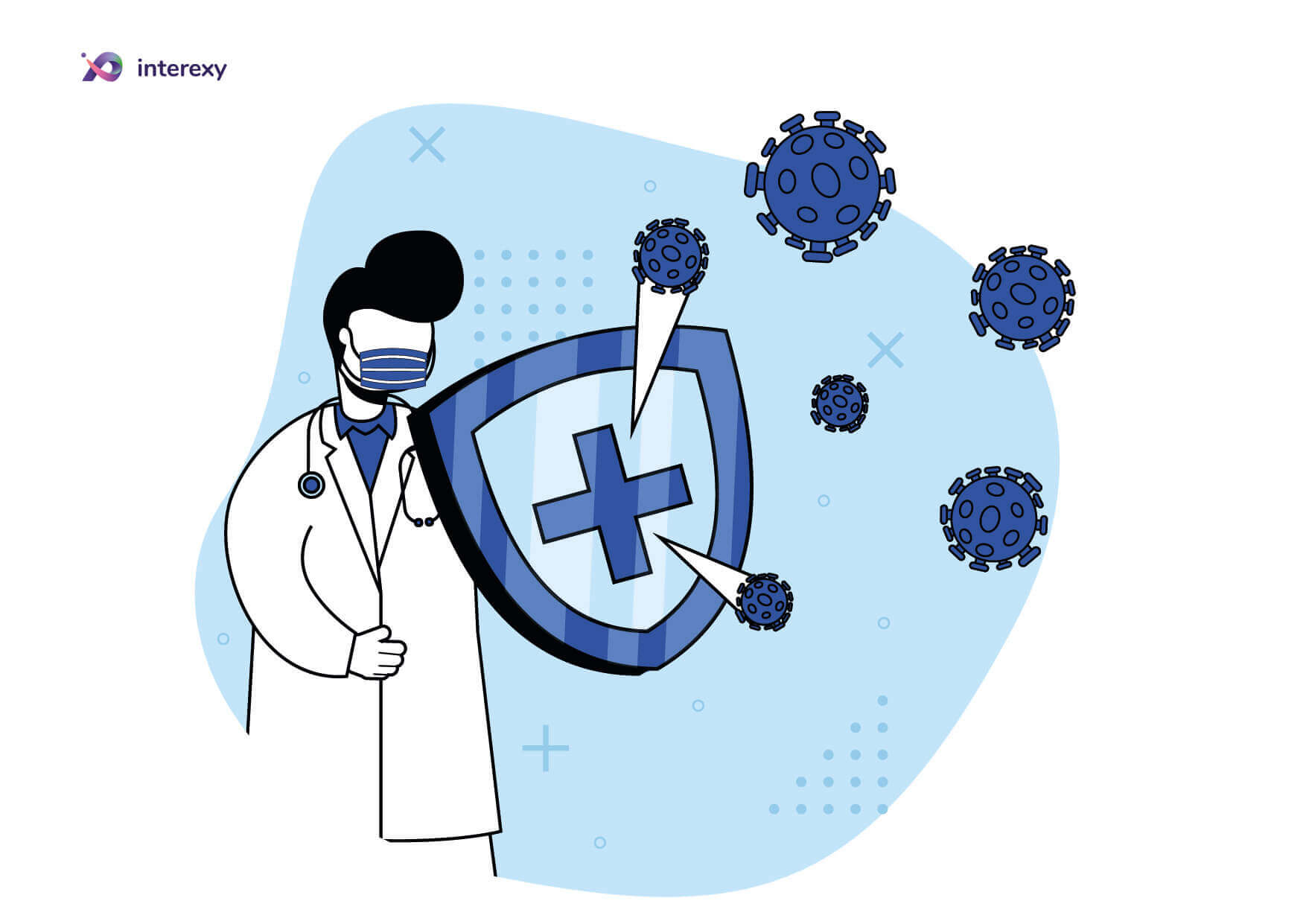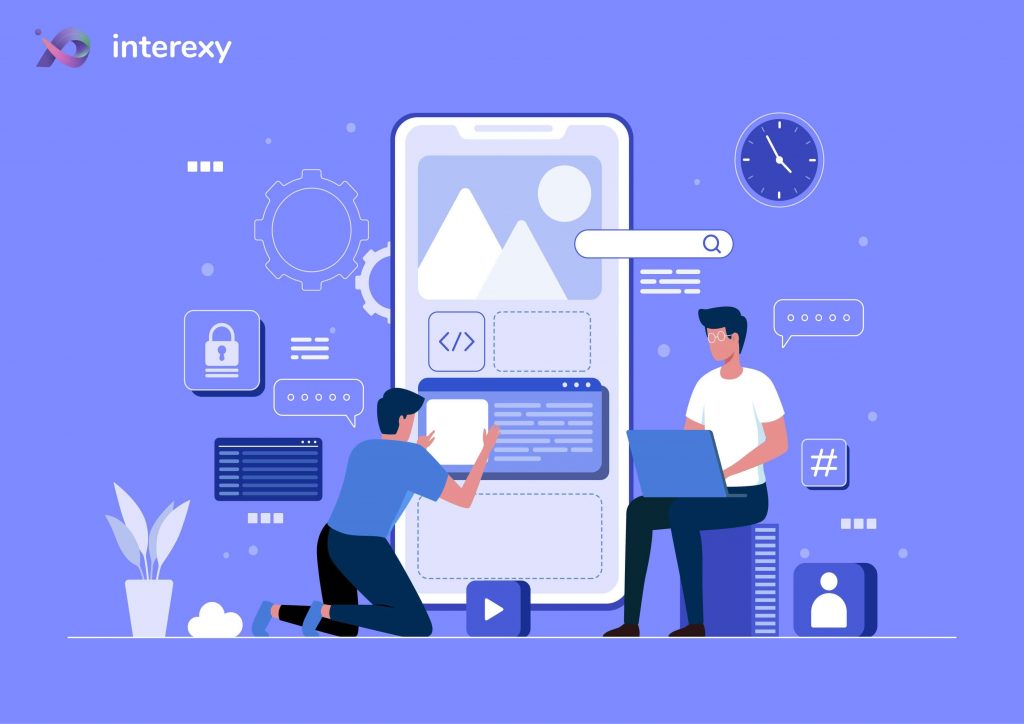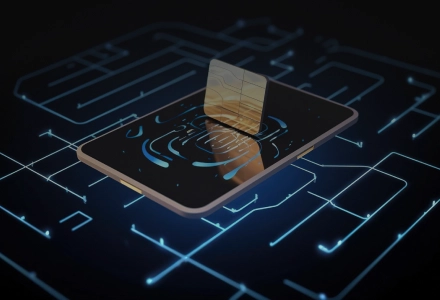September 3, 2021
How to Build Medication Management Application: Types, Features, Cost
Do you know that 93% of physicians believe that mobile medication apps can improve patient’s health? This fact means that mobile apps for the healthcare niche have a great future. This article is dedicated to a particular kind of such apps — medication management apps. Below we will discuss the main benefits and features of such software and estimate how much it costs to build a management app.
Table of content
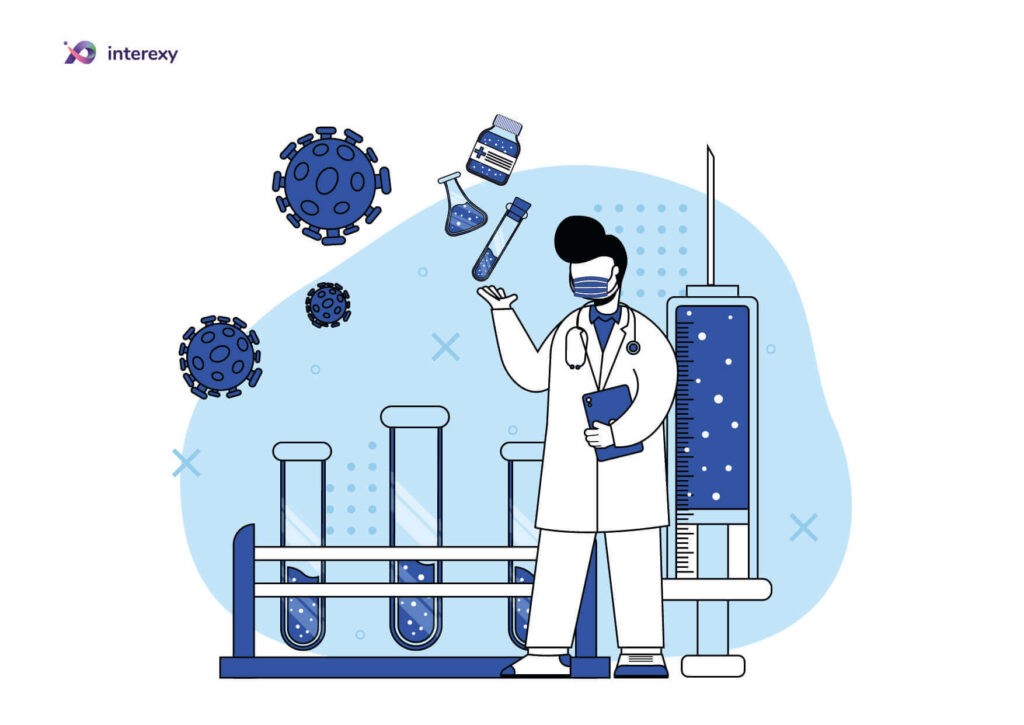
4 Benefits of Medication Management Applications
Let’s learn what benefits patients and physicians get while using medication management apps (MMAs).
#1 Medication planning
Perhaps the main task of medication management apps is to monitor the timely and correct drug intake (in terms of compatibility with other drugs) for patients. This reduces the burden on doctors and increases the patients’ awareness — they will understand exactly what and when to take, according to the premade schedule.
#2 Drugs interaction analysis
Usually, medication management apps are able to independently analyze the compatibility between different drugs so that the prescribed treatment does not provoke any side effects. This is a win-win advantage for both patients and doctors, who get additional constraints on prescription and treatment planning.
#3 Dosage management
The dosage of the drug depends on the individual parameters of each patient: weight, age, the severity of the disease, etc. To correctly distribute the dosages of each drug, doctors, and patients can use such applications that independently calculate the dosage and promptly warn about the end of the supply of pills.
#4 Drug research
Medication management apps can find the right drugs within walking distance to a specific patient, choose the cheapest offers, and even book the required amount of goods remotely. And all without third-party help. Typically, such capabilities are provided through built-in geolocation functions.
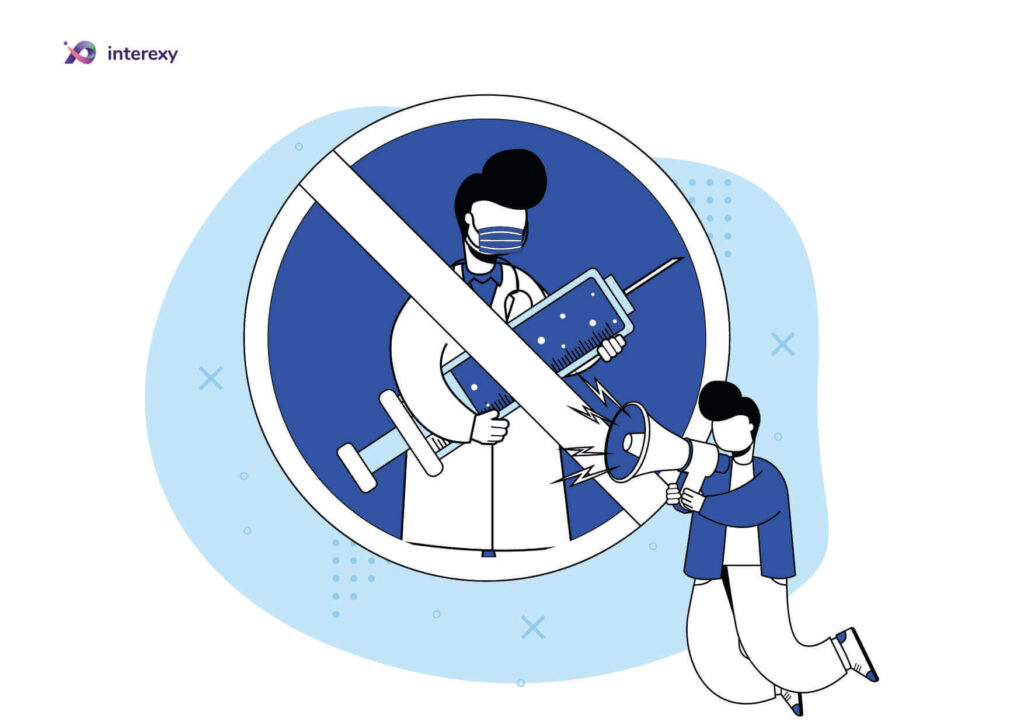
3 Main Types of Medication Management Apps
Where should you start when you create a medication management app? First, define the type of your software.
Now we offer to learn three main types of medication management apps and describe their advantages.
#1 Simple medication reminders
This type of application includes basic functions to alarm patients to an upcoming medication intake. They usually use push notifications as a reminder for medical manipulations even when the app is in an inactive (background) mode.
#2 Advanced medication reminders
Along with the functionality of the previous type of applications, advanced medication reminders are equipped with such additional features as medication cards, missed pills tracker, a drug compatibility guide, etc.
#3 Medication management apps
This type is the most progressive and difficult to implement. It collects all the critical symptoms of a particular patient, processes them and transfers to their doctor. In addition to the constant and timely communication with doctors, apps with such scrupulous monitoring allow patients to be transferred to home treatment (instead of the more expensive and resource-intensive inpatient hospital stay) without increasing the health risks.
Also, such applications contain all the features described in the two previous types of apps.
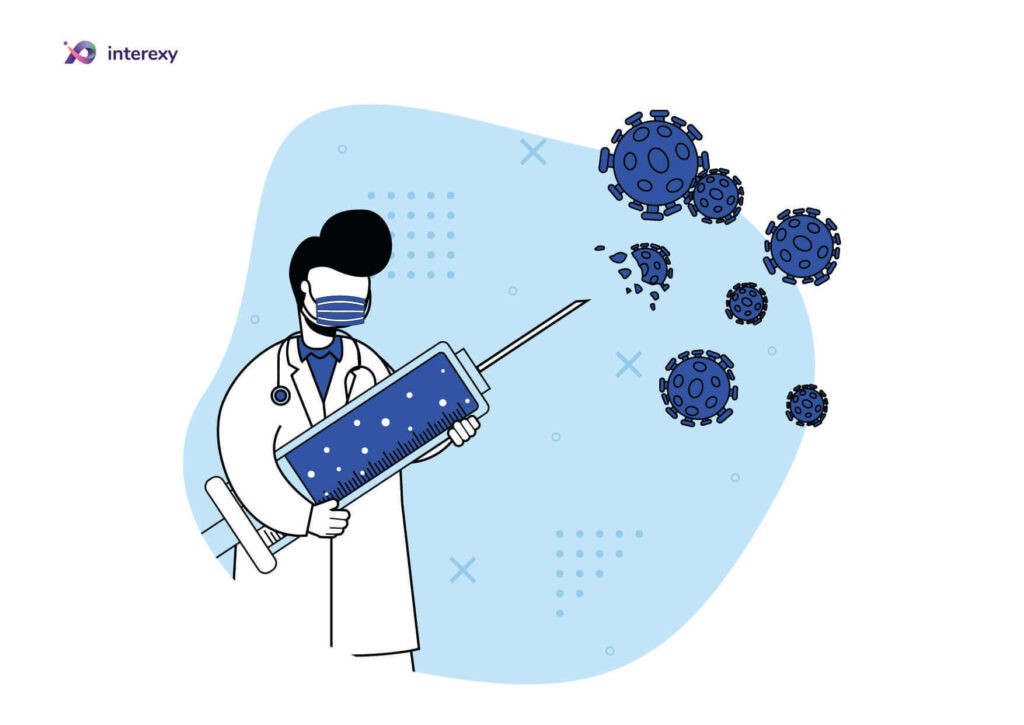
9 Top Features of Medication Management Software
Do you know how to build a medication management app? What functionalities are essential for it to be useful and successful? Let’s delve into details and discuss the main features of an average medication management software.
#1 Scheduling
Physician scheduling applications automate physician work and improve patient care. Thus, doctors get complete confidence that patients are aware of the instructions and, in particular, they know when and how much they need to take medication.
#2 Reminding push notifications
No application on a user’s smartphone is capable of working 24/7. For this reason, it is important for doctors to provide round-the-clock access to the application’s functionality, even if it is not currently active. In particular, for urgent interaction with patients, medication management apps have push notifications (activated only if there is an Internet connection).
#3 Interaction permission notifications
Leaving patients without round-the-clock inpatient supervision, it is very important for doctors to be sure that they do not accidentally take incompatible medications at one time. For this, applications provide interaction permission notifications, which, together with notifying patients about the timely intake of drugs, also monitor their compatibility. And, of course, it will always be helpful for patients to be aware of the possible side effects of medications.
#4 User database
A user database is needed to increase the efficiency and convenience of interaction between the patient and the doctor. Typically, all patient data is stored in the cloud, guaranteeing increased security and the fastest possible access even with low-speed Internet connections.
A user database contains:
- all information about patients — full name, date of birth, addresses, and contacts;
- forms and contracts — any documents and questionnaires that patients have ever completed;
- history of current illness and previous diagnoses;
- full report on paid and unpaid appointments.
Reach out to us for crafting a user-centric app that is worth a thousand downloads!
Get in touch#5 Prescription alerts
This functionality is mostly paid — at least because medical services are chargeable. Therefore, to effectively monetize the offered features, developers implement prescription alerts, which remind users to renew their subscriptions for remote medical services.
#6 Dosage management
Patients with disabilities often have problems with a lack of pills prescribed by their doctor. To prevent this, applications activate notifications about expiring stocks of drugs. They can also contain geolocation-based tools that allow patients to quickly find nearby pharmacies with the lowest prices for the medicine they need.
#7 E-billing
The Doctor-on-Demand feature is needed in order to quickly resolve urgent issues related to medical services. To further speed up the process of interaction with doctors, the application needs to be equipped with the ability to pay for services online (with the help of the payment gateway).
#8 Online prescriptions
In many cases, it is more convenient for patients to communicate with doctors through the application than to visit them offline (especially for repeat visits). At the same time, the built-in functions such as an appointment planner, a personal chat with a doctor, and a vital signs tracker will ensure the maximum effectiveness of such interactions.
#9 Chatbots
Medical chatbots gradually enter doctors’ daily practice, help them solve many problems, and communicate with patients. They remind users to take prescribed medicine, warn the patient about side effects or contraindications, and help arrange an appointment with the doctor.
More advanced intelligent systems based on artificial intelligence recognize the patient’s responses, understand the context of the conversation, and collect detailed information about health conditions and complaints, just like an ordinary doctor in a clinic. It usually takes a doctor about 15 minutes to do this. Solving this problem in the application saves the specialist’s time and allows them to quickly understand the cause of the ailment (in particular, associated with taking prescribed drugs).
Cost of Medication Management App Development: How to Estimate
Do you plan to develop a medication management application? Let’s try to estimate the budget of your future app for taking meds through the following aspects:
- a set of functions for a minimum valuable product, or MVP (without these functions, your product will lose value for its target audience);
- additional functions (these are functions that will provide your project with maximum competitiveness and strengthen its position in the top applications of this niche);
- API integration (these are the capabilities of third-party services, for example, authentication via social networks, email newsletter, geolocation, etc.);
- compliance with standards (medical software requires compliance not only with the GDPR but also with other more specific standards, such as IEC 62304);
- 24/7 access to a call center or family doctor;
- the need for external specialists (for instance, seniors in Healthtech software development) to be involved in the development process.
All these aspects affect the total cost of medication management app development. From Interexy’s experience, the development of an MVP based on the features specified in the paragraph above will cost the client $40,000-80,000.
If you are looking for the best value for money custom development of medication management app services, contact us now. You will be convinced by your own experience that the development of even the most complex software can be affordable.
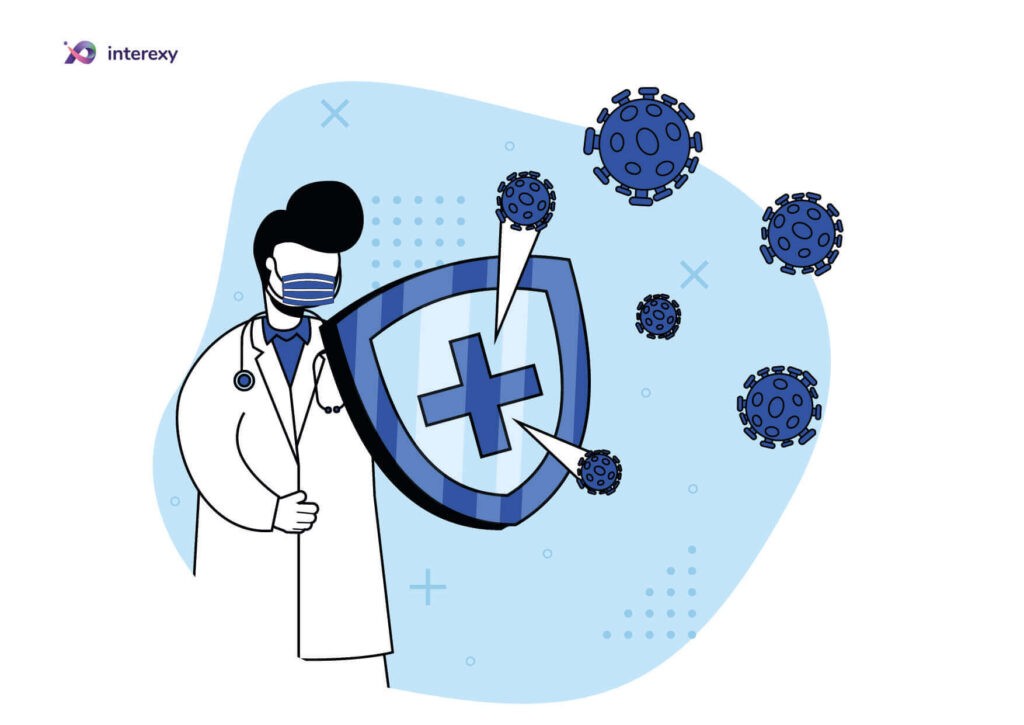
Our Experience and Case Studies
Now let’s find out about the experience of our team in creating a medication management application. Such applications require a particular level of qualification of the specialists who make it. Therefore, if you are looking for a team to implement your project, it is better to choose the one whose portfolio contains at least several cases of a similar subject.
For instance, we built from scratch apps like MedKitDoc and Crumb.
MedKitDoc
Let’s start with MedKitDoc. This is a German project aimed at providing end-to-end remote communication between patients and doctors. It was launched in the shortest possible time and with a limited budget.
In the near future, we are planning to develop, improve and scale the product (in particular, we are going to create an Android version of it and launch a full-blown white-label platform for B2B markets in the area).
Crumb
As for Crumb, this mobile app is one of the most high-profile fintech startups based on the idea of rewarding users for their health and fitness activities. The service also helps promote local businesses in Hamburg who are willing to provide discounts in exchange for user actions in the app.
By the way, shortly after its launch, this project was ranked 17th in the German health and fitness app store. In turn, the MVP was built in 1.5 months with a budget of less than $20,000.
Soon, we are going to adapt the app for wearable devices.
The healthcare app development collaboration with Interexy will give you the following benefits:
- a dedicated team of highly skilled developers;
- the option of involving specialists from the field of medicine;
- the ability to release your plans with a minimum budget;
- strict adherence to your wishes;
- reliable, scalable, and customizable solution;
- quick launch of the product to the market;
- prompt technical support.
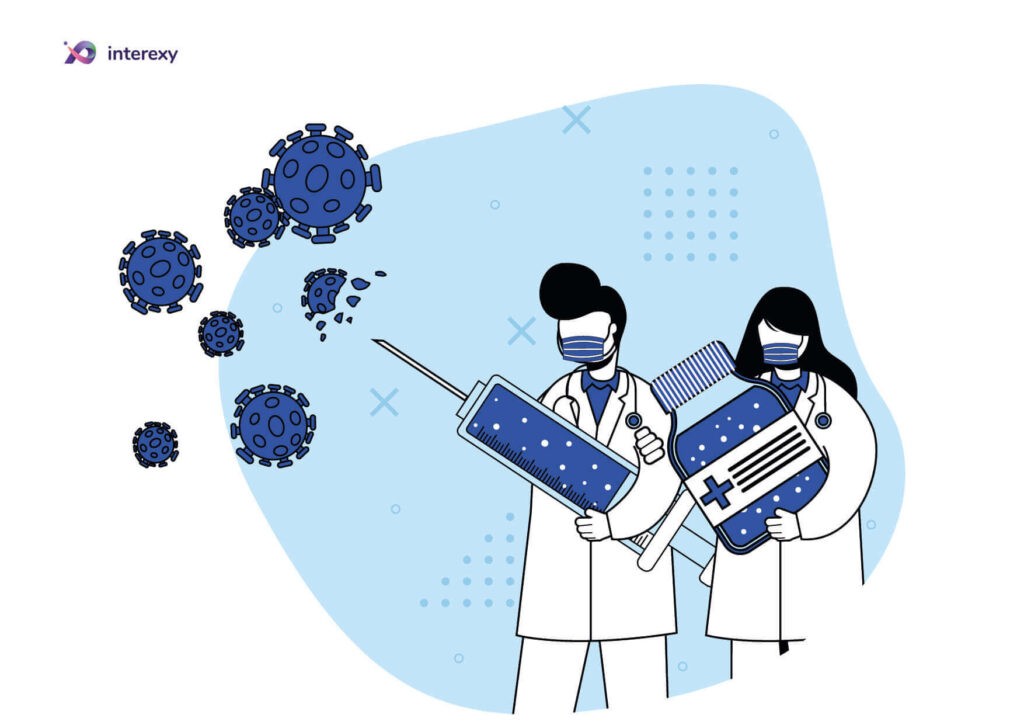
Conclusion
We hope that we helped you to understand how to make a medication management app. Also note that the demand for mobile solutions in the healthcare niche will grow every year, along with the growth of a conscious attitude to health among ordinary people.So now is the perfect time to launch your own medication management app. If you are looking for a medication management app development team to complete your tasks in the highest quality and affordable way, contact Interexy, and we will help you bring your idea to life as your dedicated development partner. Our healthcare software development services involve designing and developing of healthcare softwares for better patient care and improved efficiency. Let’s discuss the details of making a medication management app and calculate its cost right now!
